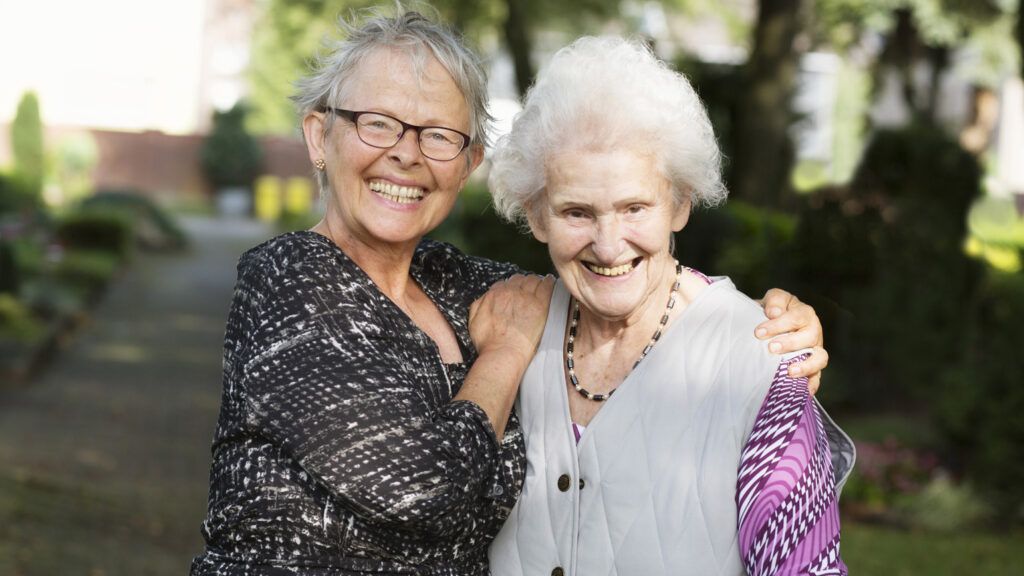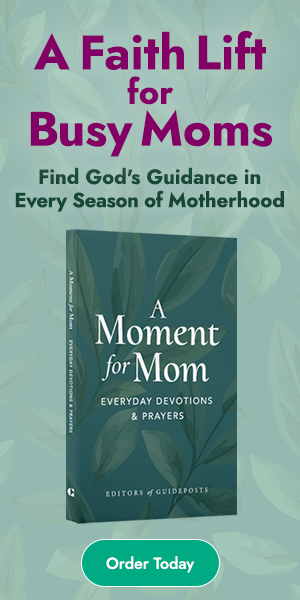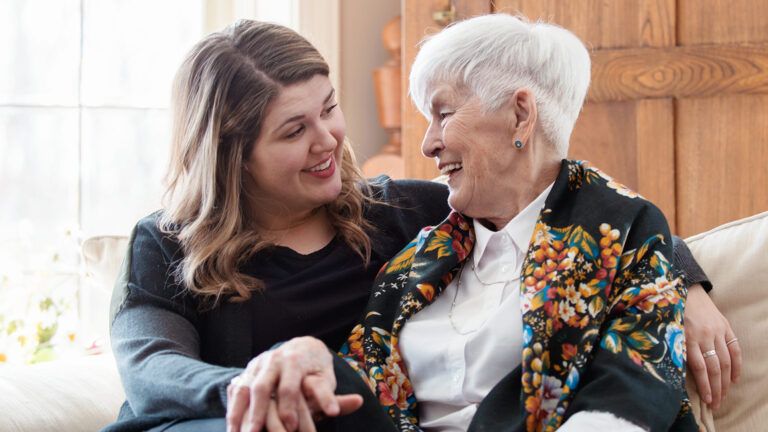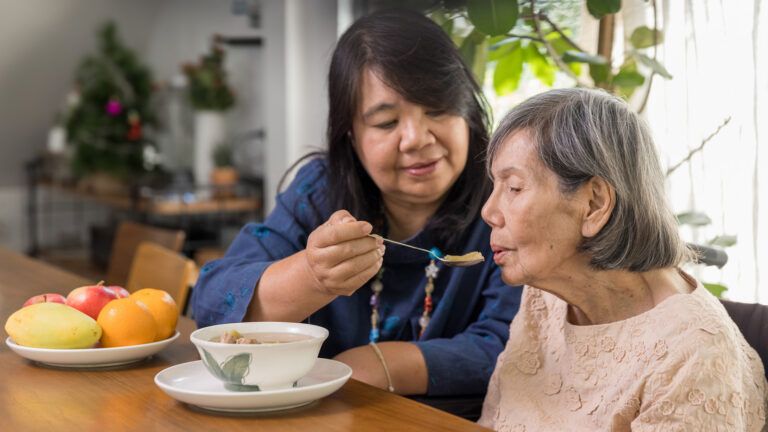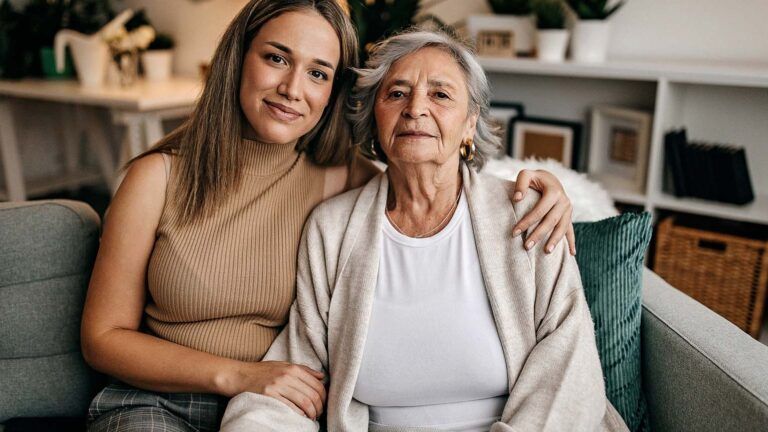You’ve got a job, maybe kids, important activities and interests, a need for sleep, and you handle your aging mother’s care all by yourself. You adore her and want nothing more than to give back to her all that she gave to you, and you’re ready to throw your hands up in the air in surrender. You know deep down that you can’t do it all, but what would everyone think? That you’re not perfect?
“Women caregivers make it look easy, and their family members may not be as helpful as they could be because they’re doing it all so well,” caregiving advocate and radio host Pamela D. Wilson, told Guideposts. org. “They say, ‘You’re doing a great job—you don’t need any help.’ But she’s afraid to ask for help because she doesn’t want to appear incompetent. Caregivers are afraid of having to ask for help.”
Yet help is essential to any caregiver’s emotional and physical well-being, and is a critical component to continue doing the job well. That translates to better care for your loved one. When someone else takes on some of the burden, it can also help to protect the special bond you share with your mom. Help can come from other family members or friends, but hiring in-home care can be an especially effective means.
Sons are more apt to hire caregiving assistance because of the personal nature of the job—things like bathing or showering, Wilson said. Women, however, tend to be more resistant, even though they may need the help even more. “All the things that women have to do to manage their lives are complicated—like working all day, and then going to Mom’s,” Wilson said. “The benefit of hiring a caregiver is that these tasks can be done and then when the daughter does show up, it’s relationship time or it’s companionship time. Mom doesn’t need you to go in there and scrub the toilet and bathe Mom and pick up groceries and do all these things. It helps the personal relationship because the daughter’s not saying, ‘Well, gosh, Mom, why didn’t you do this, and why didn’t you do that?’ When you get tired and frustrated, it just comes out.”
If hiring a caregiver is a feasible financial option for you, the key is to match the right caregiver to your needs, as well as to your mother’s, Wilson said. For example, if you need someone who can “really cook,” it’s up to you to make that request of the agency you choose. Because family members know the most about their loved ones, and what they themselves need help with, it’s up to them to interview and guide the caregivers they hire, she said.
Once you have the right person in place, it can make an enormous difference. “You can delay people having to go into nursing homes or assisted living communities,” Wilson said. “You can also improve their health if they’re getting their nutrition, if they’re being reminded to take their medications, if they’re getting out for a walk. All of that goes along with keeping these elderly folks more active, reducing the risk of falls, and giving them something to look forward to. They actually enjoy having a caregiver for socialization. They have someone new to tell their stories to.”
As critical as help is, it’s only one part of the equation. Wilson shared some additional tips to improve your well-being and make you a better caregiver to your mom:
Go on a complaining starvation diet
“It’s so easy to get in the habit of complaining and being negative all the time, and all it does is make us more negative,” Wilson said. “If you’re on a complaining starvation diet, the minute that you start to think something negative, you have to stop yourself and instead think something positive—something that you’re grateful about.”
Laugh
“Humor is so important,” she said. “It’s laughing at ourselves, but also being able to laugh at the crazy situations that happen. You have to be able to laugh at things because otherwise, you’d be depressed by all the things that happen and that you have to do.”
Keep communication positive
Caregivers have to deal with uncomfortable conversations, Wilson said. Rather than confronting your mother in a harsh way when something frustrates you, explain clearly what it is you’re concerned about and why, but stay positive. “It’s kind of saying, ‘I’m noticing this,’ and then explaining the consequences but in a nice way,” she said. “You’re helping her think about, well, yeah, I don’t want that to happen, I should do this more.”
Set boundaries
Decide how much time you can devote to caregiving, depending on the activities on your plate and your comfort zone. “If you’re a working daughter, you could say, ‘Saturdays I can come over all day but during the week, I can’t.’ Or, ‘I’m willing to do these five things for you and then I’ll hire a caregiver to go do grocery shopping and errands,” Wilson said. Boundaries can be financial, as well— you can pay X amount a month for caregiving, for example. If hiring a caregiver is not financially feasible, maybe you need to ask a sibling or another family member to pitch in.
Consider your emotional triggers
“Figure out what is upsetting you because sometimes Mom says something and we’re remembering an event that happened when we were five years old,” Wilson said. “If you can learn what your emotional triggers are, and what’s causing the reaction, you can choose to react differently.” Even without emotional triggers, it’s easy to get exhausted, she said. “I will have caregivers who say, ‘Oh my gosh, my mom or dad is the sweetest thing, but they’re living with me and I never get time by myself. I know Mom or Dad is trying so hard not to be a burden, but I feel like my life has been taken away. How do I manage with that?’ It’s usually about trying to find things that you’re grateful for.”
Practice daily self-care
“You’ve got to find time every day, without fault, in a regular routine that you do something for yourself,” Wilson said. “So, you wake up in the morning and you say the rosary or you meditate or you go for a 30-minute walk. Listen to music, go for a foot massage, read the newspaper, have a cup of coffee. Most caregivers find it very difficult to make that time for themselves because they’re saying, ‘I have these others things to do.’ But if you make that time, you’re not as tired and you’re not as cranky, and you’re more focused.”
Use available resources
Read more information on numerous services for older adults and their families.
Ask your loved one’s doctor about whether it’s a good idea to bring someone in the home now to help and ask about the safety protocols at any agency you contact. If you can’t hire someone now, this may be a good time to begin research options for the future.
